The Apollo 11 Command Capsule Digitization Story
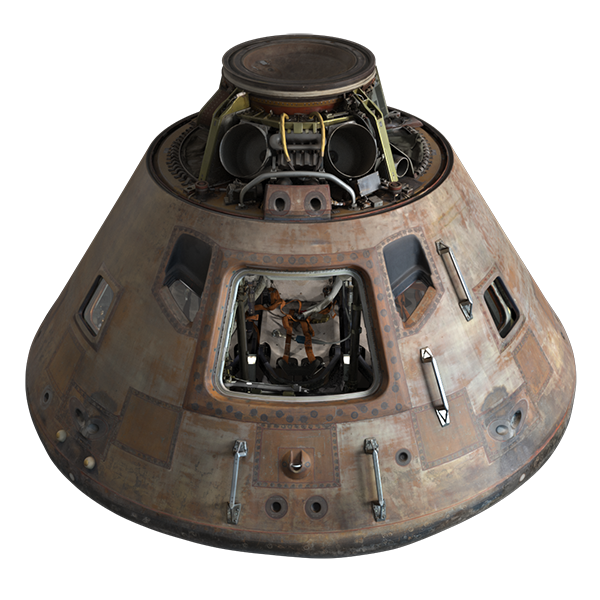
To mark the 47th anniversary of the Apollo 11 moon-landing mission, the Smithsonian has made available a high-resolution 3-D scan of the command module “Columbia,” the spacecraft that carried astronauts Neil Armstrong, Edwin “Buzz” Aldrin and Michael Collins to the moon. This highly detailed model allows anyone with an internet connection to explore the entire craft including its intricate interior, which is not possible when viewing the artifact in the Smithsonian’s National Air and Space Museum. The Smithsonian is also making the data files of the model available for download so it can be 3-D printed or viewed with virtual-reality goggles.
The scanning allowed for the curatorial and collections team to get glimpses of the interior of the Command Module that they had not previously seen. Protective covering over the hatch opening of the Command Module has only been removed a handful of times since the artifact came into the collection in 1971. During the scanning they rediscovered a number of instances of “astronaut graffiti” not previously known to the museum. Seeing such details and studying the text have enabled curators to enhance their understanding of how the missions were conducted.
With current internet speeds the model we are able to deliver for viewing online represents only a fraction of the actual data we collected. Want to see more? You can download the medium resolution files model below and view them using a free version of ReMake software. We are also working to make higher resolution models and raw scan data available for download in the near future, please check back soon for updates. Also check out all of our latest 3D downloads at 3d.si.edu/browser.
Downloads
3D Print Ready Models 
We have a few “water-tight” 3D model downloads that are ready to run through your prefered 3D printing process. Once your print is complete please share the results on Twitter @3D_Digi_SI, Facebook or email directly at 3d.feedback@si.edu.
Don't have access to a 3D printer? You can use these models to order from a variety of online 3D print service providers.
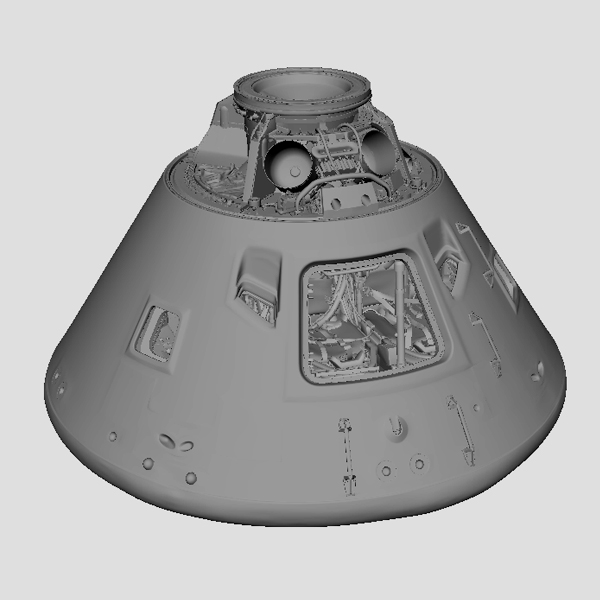 CM Scale Exterior
CM Scale Exterior
(8 MB)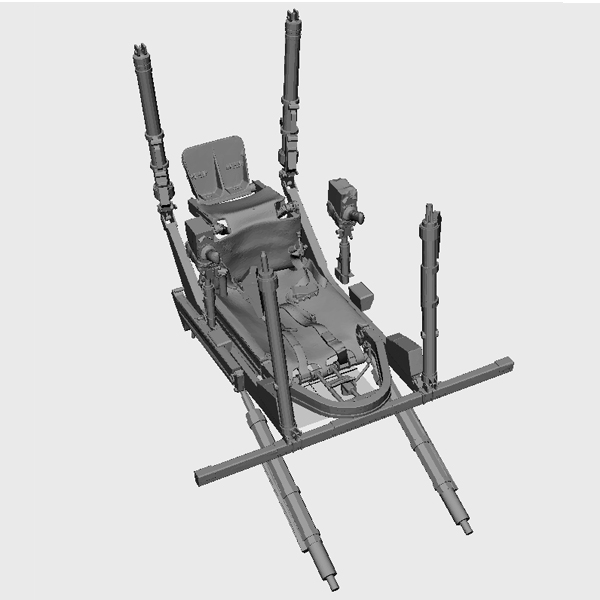 CM Scale Pilot Seat
CM Scale Pilot Seat
(23 MB)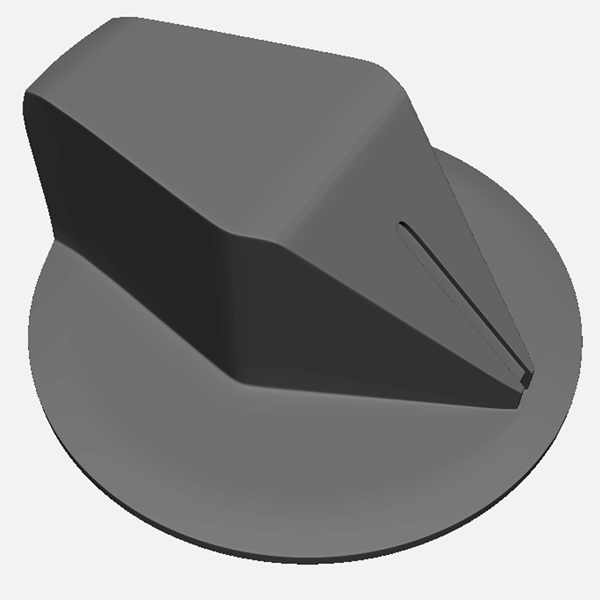 CM 1:1 Control Panel Knob
CM 1:1 Control Panel Knob
(2 MB)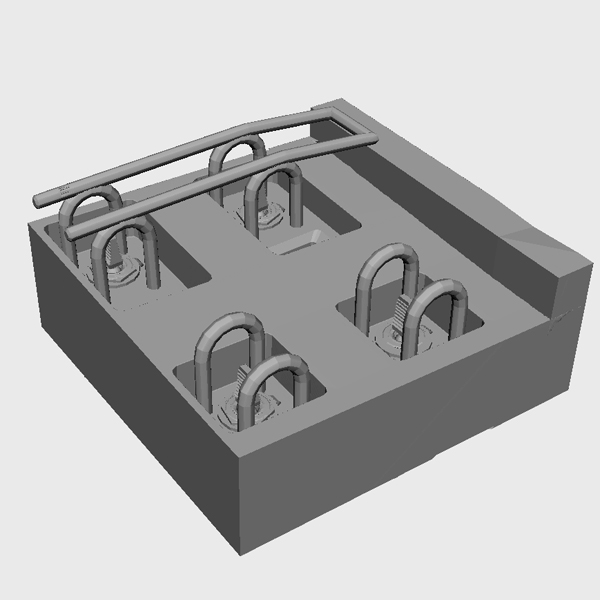 CM 1:1 Control Panel Section A
CM 1:1 Control Panel Section A
(118 MB)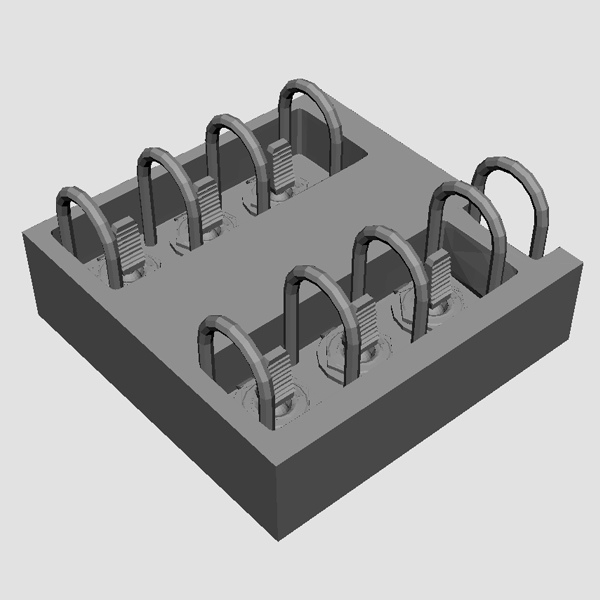 CM 1:1 Control Panel Section B
CM 1:1 Control Panel Section B
(2 MB)
Render Ready Models 
VR Ready Downloads
Take the pilot seat (literally you should sit down when using most VR headsets) inside the command module! We have a few platforms supported as well as VR renders you can plug into other platforms.
 CM Interior: GearVR
CM Interior: GearVR
(208 MB) CM Interior: Sphere Panoramic Image
Download
CM Interior: Sphere Panoramic Image
Download CM Interior: Facebook
CM Interior: Facebook
View on facebook.com »
Raw Data 
We strive to make “least interpreted” data available for download so that students and scholars alike can understand how we arrived at our final visualizations. Perhaps you will come up with your own use of these datasets. As such we will be making photogrammetry images, raw scan data as well as foundational composited models available for download.
 CM Interior Composite Scan - MedRes (2.4 GB)
CM Interior Composite Scan - MedRes (2.4 GB)
 CM Exterior Composite Scan - Heat Shield - MedRes
CM Exterior Composite Scan - Heat Shield - MedRes
(853 MB) CM Exterior Composite Scan - MedRes (1.7 GB)
CM Exterior Composite Scan - MedRes (1.7 GB)
Coming Soon!
- Surphaser Laser Scan data
- Photogrammetry Data
- CM Exterior Composite Scan - MedRes
- Canon 5DS R: 11,874 50mp Images
- Sony NEX 6: 3,800 16mp Images
